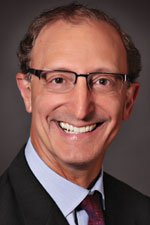Education is evolving. The fast-paced development in technology and medical sciences has created an environment of exponential information. No longer are the days where a clinician’s educational degree is enough preparation for a lifelong career. Continuing education is growing at an ever-increasing speed and is not limited to dentistry.
Today’s clinician seeking dental implant education has a plethora of choices. Many of the implant courses offered are 1- or 2-day programs on a particular topic, often taking place over a weekend. While many see these courses as a convenient way to fit education into their busy schedule, there’s a downside to this arrangement. Getting all this informational overload can often become confusing and hard to assimilate into a clinician’s practice.
When I was first introduced to implantology in 1982, I was fortunate enough to have practiced under a mentorship with an experienced implantologist for 3 years. Unfortunately, there were no formal courses or programs back then, so I had to take as many courses as I could. There were no continuums courses back then, only technical training courses offered by implant companies.
Today’s young clinician has many more educational opportunities to get involved in implant dentistry. When considering implant continuing education, it’s important for a clinician to realize that choosing a continuum educational program will set his/her implant foundation. Comprehensive programs such as the American Academy of Implant Dentistry’s (AAID) MaxiCourses® are excellent examples of a continuum course, which offer a solid foundation for successful integration of implant dentistry into a clinician’s practice.
MaxiCourses® programs are 300-plus hour programs, designed to position the participants to become proficient in all aspects of implant dentistry. Credentialed members who are board certified by the American Board of Oral Implantology give these courses throughout the world. As Director of both the New York and Las Vegas AAID MaxiCourses®, I have personally witnessed the growth that these programs have provided to hundreds of participants.
Programs such as the MaxiCourse®, focusing on the basic sciences, academic materials, clinical case reporting, hands-on exercises, and live surgical experiences, are the highest level of implant education. Repetitive learning over a 1-year curriculum really helps. Students who have taken many weekend courses come to our program and say, “Wow, now I’m starting to understand it!” These programs encourage participants to go to their practices and look at real-life situations. The intent is for the doctors to be able to perform implants in their own practices in a predictable manner.
The AAID MaxiCourse® provides the CE hours necessary to fulfill the CE requirement of the Fellow Membership process of the AAID. The AAID credentials both specialists and general dentists. Today, everyone claims to be performing implant dentistry. The Diplomate credential of the American Board of Implant Dentistry is the highest recognition of implant credentialing. Credentialing is a way for dentists to separate themselves from the pack.
Technological advancements will continue to make the placement and restoration of dental implants easier and more precise. Within the next decade or two, the placement of implants will be as much a part of the average general dentist’s menu of services as fillings, extractions, and cleanings. CT scanning and surgical guides are making things a little less complicated, and as more doctors get trained and the technology continues to evolve, they’ll be able to provide these services.
The dental profession in general needs more comprehensive continuing education courses, such as the AAID MaxiCourses®, so that everyone has a better understanding of all the diagnostics, intricacies, and surgical techniques in the field of implantology. We still need to work together in multi-specialty settings. Doctors need to be able to identify which cases are more straightforward and which should be in the hands of more experienced implant dentists.
Implant dentistry is evolving, and many dentists are going to be performing implant procedures in the future. Those who have the proper training will be much more successful, providing safer treatment to the public. I look forward to seeing even more dentists properly trained and tested so that both the profession and the public know who’s qualified to perform these procedures.
Stay Relevant With Implant Practice US
Join our email list for CE courses and webinars, articles and mores

 John C. Minichetti, DMD, is a Fellow of the Academy of General Dentistry and the American Academy of Implant Dentistry, and a Diplomate of the American Board of Oral Implantology/Implant Dentistry. He is an Attending at Englewood Hospital, Jersey City Medical Center, and St. Barnabas Medical Center. Dr. Minichetti is Past President of the American Academy of Implant Dentistry, President of the Bergen County Dental Implant Study Group, and Board Member of the American Board of Oral Implantology, as well as Director of the New York AAID MaxiCourse® at St. Barnabas Medical Center, and Director of the Las Vegas AAID Maxicourse® at UNLV, School of Dental Medicine.
John C. Minichetti, DMD, is a Fellow of the Academy of General Dentistry and the American Academy of Implant Dentistry, and a Diplomate of the American Board of Oral Implantology/Implant Dentistry. He is an Attending at Englewood Hospital, Jersey City Medical Center, and St. Barnabas Medical Center. Dr. Minichetti is Past President of the American Academy of Implant Dentistry, President of the Bergen County Dental Implant Study Group, and Board Member of the American Board of Oral Implantology, as well as Director of the New York AAID MaxiCourse® at St. Barnabas Medical Center, and Director of the Las Vegas AAID Maxicourse® at UNLV, School of Dental Medicine.

